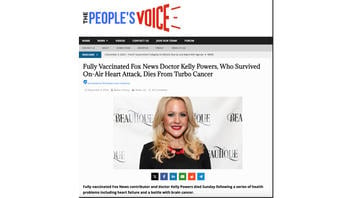From the onset of the Covid-19 pandemic almost one year ago, it was clear that our world faced far more than a public health emergency. The biggest international crisis in generations quickly morphed into an economic and social crisis. One year on, another stark fact is tragically evident: our world is facing a pandemic of human rights abuses.
Covid-19 has deepened preexisting divides, vulnerabilities and inequalities, and opened up new fractures, including faultlines in human rights. The pandemic has revealed the interconnectedness of our human family – and of the full spectrum of human rights: civil, cultural, economic, political and social. When any one of these rights is under attack, others are at risk.
The virus has thrived because poverty, discrimination, the destruction of our natural environment and other human rights failures have created enormous fragilities in our societies. The lives of hundreds of millions of families have been turned upside down – with lost jobs, crushing debt and steep falls in income.
Frontline workers, people with disabilities, older people, women, girls and minorities have been especially hard hit. In a matter of months, progress on gender equality has been set back decades. Most essential frontline workers are women, and in many countries are often from racially and ethnically marginalised groups.
Most of the increased burden of care in the home is taken on by women. Violence against women and girls in all forms has rocketed, from online abuse to domestic violence, trafficking, sexual exploitation and child marriage.
Extreme poverty is rising for the first time in decades. Young people are struggling, out of school and often with limited access to technology.
The latest moral outrage is the failure to ensure equity in vaccination efforts. Just 10 countries have administered more than 75% of all Covid-19 vaccines. Meanwhile, more than 130 countries have not received a single dose.
If the virus is allowed to spread like wildfire in parts of the global south, it will mutate again and again. New variants could become more transmissible, more deadly and potentially threaten the effectiveness of current vaccines and diagnostics. This could prolong the pandemic significantly, enabling the virus to come back to plague the global north – and delay the world’s economic recovery.
The virus is also infecting political and civil rights, and further shrinking civic space. Using the pandemic as a pretext, authorities in some countries have deployed heavy-handed security responses and emergency measures to crush dissent, criminalise basic freedoms, silence independent reporting and restrict the activities of nongovernmental organisations.
Human rights defenders, journalists, lawyers, political activists – even medical professionals – have been detained, prosecuted and subjected to intimidation and surveillance for criticising government responses to the pandemic. Pandemic-related restrictions have been used to subvert electoral processes and weaken opposition voices.
At times, access to life-saving Covid-19 information has been concealed while deadly misinformation has been amplified – even by those in power.
Extremists – including white supremacists and neo-Nazis – have exploited the pandemic to boost their ranks through social polarisation and political and cultural manipulation.
The pandemic has also made peace efforts more difficult, constraining the ability to conduct negotiations, exacerbating humanitarian needs and undermining progress on other conflict-related human rights challenges.
Covid-19 has reinforced two fundamental truths about human rights. First, human rights violations harm us all. Second, human rights are universal and protect us all.
An effective response to the pandemic must be based on solidarity and cooperation. Divisive approaches, authoritarianism and nationalism make no sense against a global threat. With the pandemic shining a spotlight on human rights, recovery provides an opportunity to generate momentum for transformation. To succeed, our approaches must have a human rights lens.
The sustainable development goals – which are underpinned by human rights – provide the framework for more inclusive and sustainable economies and societies, including the imperative of healthcare for everyone.
The recovery must also respect the rights of future generations, enhancing climate action to achieve carbon neutrality by 2050 and protecting biodiversity. My Call to Action for Human Rights spells out the central role of human rights in crisis response, gender equality, public participation, climate justice and sustainable development.
This is not a time to neglect human rights; it is a time when, more than ever, human rights are needed to navigate this crisis in a way that will allow us to zero in on achieving inclusive and sustainable development and lasting peace.
We are all in this together. The virus threatens everyone. Human rights uplift everyone. By respecting human rights in this time of crisis, we will build more effective and equitable solutions for the emergency of today and the recovery for tomorrow.
I am convinced it is possible – if we are determined and work together.
*
Note to readers: please click the share buttons above or below. Forward this article to your email lists. Crosspost on your blog site, internet forums. etc.
António Guterres is secretary general of the United Nations
Related Articles
*** This article has been archived for your research. The original version from Global Research can be found here ***



